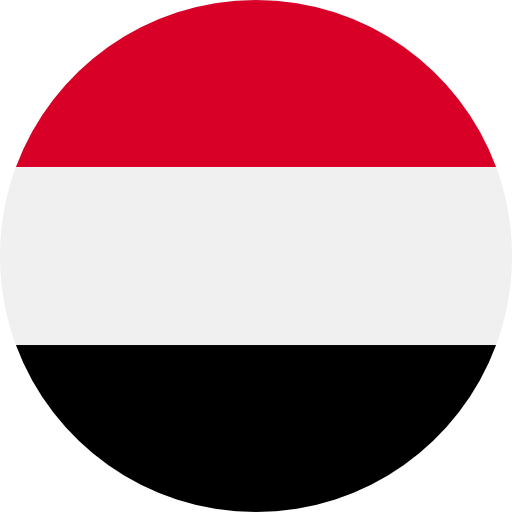About YE

Capital
The capital city of Yemen is Sana'a.
Population
As of the latest estimates, Yemen has a population of approximately 30 million people.
Area
Yemen covers an area of about 527,968 square kilometers (203,850 square miles), making it the 50th largest country in the world.
Official Language
The official language of Yemen is Arabic.
Government
Yemen is a unitary republic with a presidential system. The President serves as both the head of state and government. However, Yemen has faced political instability, including civil unrest and conflict, which has affected its governance structure.
Independence
Yemen gained independence from the Ottoman Empire on May 22, 1918. Later, North Yemen achieved independence from the United Kingdom on November 30, 1967, and South Yemen gained independence from the United Kingdom on November 30, 1967.
Currency
The currency of Yemen is the Yemeni rial (YER).
Economy
Yemen's economy is primarily based on agriculture, fishing, and the production of oil and natural gas. However, the country has faced significant challenges, including poverty, unemployment, and instability, which have hindered economic development.
Natural Features
Yemen is characterized by diverse landscapes, including mountains, deserts, and coastal plains. The country is known for its unique architecture, including historic cities such as Sana'a, which is a UNESCO World Heritage Site.
Culture
Yemen has a rich cultural heritage, influenced by its long history and diverse ethnic groups. Yemeni culture is characterized by its traditional music, dance, cuisine, and clothing, reflecting the country's Arab, African, and Islamic heritage.
Challenges
Yemen faces numerous challenges, including political instability, armed conflict, poverty, food insecurity, and humanitarian crises. The ongoing conflict in Yemen has led to widespread displacement, loss of life, and a severe humanitarian crisis, including famine and outbreaks of disease.
Infrastructure
Yemen's infrastructure has been significantly affected by the ongoing conflict, with damage to roads, bridges, schools, hospitals, and other essential facilities. Access to basic services such as healthcare, education, and clean water has been severely impacted.
Humanitarian Situation
Yemen is experiencing one of the world's worst humanitarian crises, with millions of people in need of humanitarian assistance. The conflict has resulted in widespread displacement, food insecurity, malnutrition, and the collapse of essential services, exacerbating the suffering of the Yemeni population.
International Involvement
The conflict in Yemen has drawn international attention, with various countries and organizations involved in diplomatic efforts, humanitarian assistance, and peace negotiations aimed at resolving the crisis and bringing stability to the country.

National Items of Yemen
Arabian Leopard
The Arabian Leopard (Panthera pardus nimr) is a significant national symbol of Yemen. It represents strength, beauty, and the rich biodiversity of the country.
Coffee
Yemen is famous for its coffee, particularly the Mocha variety. Coffee symbolizes the rich agricultural heritage and historical significance of Yemen in the global coffee trade.
Dragon Blood Tree
The Dragon Blood Tree (Dracaena cinnabari) is a unique tree found on Socotra Island. It symbolizes the unique natural beauty and biodiversity of Yemen.
Qat (Khat)
Qat (Catha edulis) is a plant whose leaves are chewed for their stimulant effects. It is a cultural and social symbol, representing traditional practices and social gatherings in Yemen.
Jambiya
The Jambiya is a traditional curved dagger worn by Yemeni men. It symbolizes cultural heritage, social status, and the traditional attire of Yemen.
Yemeni Honey
Yemeni Honey, particularly from the Hadramaut region, is renowned for its quality. It symbolizes the rich agricultural traditions and natural resources of Yemen.
Mud Brick Tower Houses
The Mud Brick Tower Houses, particularly those in Shibam, symbolize the unique architectural heritage and historical significance of Yemen.
Aden Gulf
The Gulf of Aden, located along the southern coast of Yemen, symbolizes the country's maritime heritage, strategic location, and natural beauty.
Yemeni Silver Jewelry
Traditional Yemeni silver jewelry represents the rich artisanal heritage and cultural identity of Yemen.
Baraqish
The ancient city of Baraqish represents the rich historical and archaeological heritage of Yemen.
Balhaf
Balhaf is known for its natural gas facilities and symbolizes Yemen's modern industrial development and natural resources.
Sana'a
The old city of Sana'a, a UNESCO World Heritage site, symbolizes the rich architectural, historical, and cultural heritage of Yemen.
Frankincense
Frankincense, historically traded from Yemen, symbolizes the country's ancient trade routes and cultural heritage.
Socotra Island
Socotra Island, known for its unique flora and fauna, symbolizes Yemen's rich natural biodiversity and ecological significance.
Marib Dam
The ancient Marib Dam represents the advanced engineering and historical significance of ancient Yemenite civilizations.

An example of a hymn in Arabic, the local language spoken in Yemen, along with its English translation:
بالروح القدس إلهنا
تأتي علينا الأفضل
بالروح القدس يملأنا
ونفتح له قلوبنا
له المجد والفخر
إنه يستحق العظمة
لأنه إله الأمجاد
والمجد والكرامة


